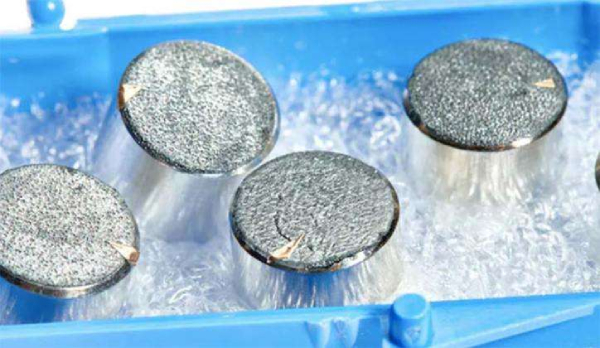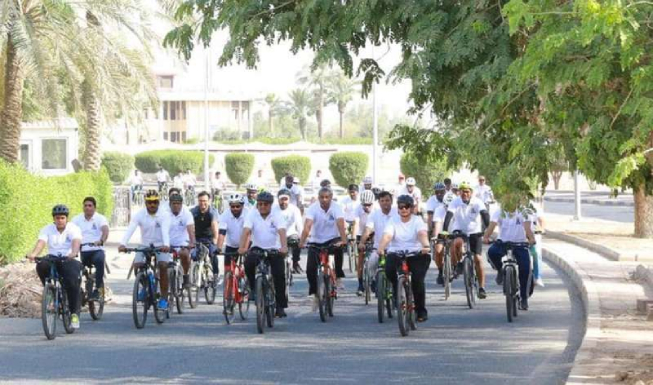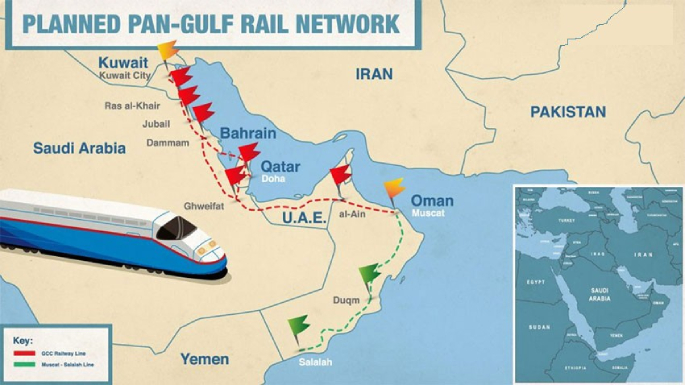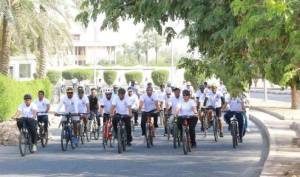
Those interested in space are excited about the auction of a moon dust sample collected by astronauts during the Apollo 11 mission in 1969. Moon dust samples are distinguished by the fact that they come from the famous NASA mission of Neil Armstrong, the first human to set foot on the moon, and this is not the only thing exciting about this dust sample, but it also holds a rather disgusting secret.
Moon dust and other creatures were fed to cockroaches during a scientific experiment, and their guts were collected to monitor their pathological effects. Science was concerned about astronauts encountering harmful chemicals or returning pollution to Earth during the first mission to the moon, according to the New York Post.
Scientists investigated the negative effects of moon dust because of this. The crickets were killed and dissected after ingesting and digesting small amounts of lunar dust. Dust from their stomachs was removed by scientists and no poisoning was found. A few of the insects' carcasses and other study memorabilia, including the remains of the insect's last meal, will be auctioned this week.
This auction is known as 'Wonderful Rarities', according to Russia Today. In the course of the bidding process, bids were opened on May 26 and are due on June 23. Moon sample auction experts believe that the sample will ultimately be worth $400k (£317k) when the initial bid is $10,000 (£7,918).
We are very excited to be representing Apollo 11 because it represents the most important mission, but we are also happy to include things like crickets that were fed lunar ingredients, which illustrates how varied the mission was," Bobby Livingstone, executive vice president of RR Auction, told CollectSPACE.
*************************************
The Occupational Safety Center affiliated to the Public Authority for Manpower began surprise campaigns to arrest workers who work directly under the summer heat, reports Al-Qabas daily. The daily added on the first day of the campaign which began on June 1, the inspectors issued 40 violations to construction workers and said 47.5 percent of these workers were found to be holding No 20 visa (domestic workers).
The daily added, the ban period during summer includes from noon until 4:00 pm and came into effect on June 1, 2022. During the campaign, which was headed by Hamad Al-Makhial, in the suburb of South Abdullah Al- Mubarak, which is witnessing extensive construction and building work, a number of violations were issued to companies that are not committed to hiring workers during the afternoon.
*************************************
A U.S. Embassy tweet of a rainbow-flagfestooned message by President Joe Biden in support of Pride Month has drawn a face-to-face diplomatic protest from Kuwait and sparked a rare Twitter fight between the two close allies. On Friday, U.S. diplomats were doubling down with rainbow flag postings and statements in support of LGBTQ rights on social media. The messages appeared in response to the Kuwaiti government’s official objection the day before to what Kuwait’s state news agency called the “pro-gay rights post” of the U.S. Embassy there.
“The United States stands with the LGBTQI+ community everywhere around the world,” State Department spokesman Ned Price said in a pointed retweet Friday of the embassy’s original offending Pride Month message. The dispute began after the U.S. Embassy in Kuwait posted a tweet Thursday that called Biden a champion of LGBTQI rights.
*************************************
Many areas in Kuwait witnessed tremors in the early hours of Saturday. Tremors lasted for a few seconds, according to the report published by the Seismological Center at Sultan Qaboos University earthquake at 5 Richter scale occurred. According to Meteorologist Adel Al-Saadoun it is considered as light where intensity is considered.
The KFSD stated that there were no reports of damages from earthquake which occurred today morning, only reports were there to inquire about the earthquake
*************************************

The Embassy of India held a Cycle Rally on World Bicycle Day, June 3rd, as part of Azadi Ka Amrit Mahotsav-Celebrating 75 Years of India's Independence and also on the 60th anniversary of the establishment of diplomatic relations between India and Kuwait, to highlight the simplicity, affordability, reliability, and environmental friendliness of cycling as a mode of transportation that promotes health and wellness.
The Indian Embassy was the starting point for the diplomatic area's cycling rally. The event had previously begun with flower homage to Mahatma Gandhi. "We're holding this cycle rally to commemorate India's 75th year of independence," Ambassador Shri Sibi George stated at the rally's launch at India House. He stated that the bicycle rally is part of India's attempts to raise awareness about the many environmental initiatives implemented by the country.
The protest was attended by Ambassador Shri Sibi George, Madam Joice Sibi, Embassy employees, and members of the Indian community. More than 50 bikes took part in the event, which took them all the way around Daiya's diplomatic district.
The rally will take place ahead of India Environment Week, which will take place from June 5 to 9, 2022, and will commemorate India's achievements in climate action, promote India's flora and fauna, and share information about the Indian Ocean, rivers, and islands, as well as tree planting and herbs. Quizzes, Painting & Drawing Competitions, Virtual Presentations, and a Grand Finale with Indian Classical Dances will take place on June 9, 2022. The Embassy cordially invites all Indian friends and diaspora to participate in the India Environment Week events.
*************************************
The Ministry of Foreign Affairs on Friday disowned a lady alleging on the social media to be belonging to the Kuwaiti diplomatic corps and supporting the Trans people. The lady in question belongs neither to the diplomatic corps nor to the Ministry of Foreign Affairs of Kuwait, according to a press release from the MoFA.
The diplomatic passport the lady holds is no longer valid; she got it when her father was working for a technical office of a government body affiliated to an embassy. The contract of the man was terminated and his diplomatic passport as well as those of his family were invalidated, the statement affirmed.(KUNA)
*************************************
The Ministry of Interior along with Residence affairs department and Public Authority of Manpower, arrested 7 expats of different nationalities working in a fake maids office in Jahra Governorate, necessary legal measures were taken against them and referred them to the competent authorities.
*************************************
The Ministry of Health of Kuwait opened Kuwait's first oncology department outside the Kuwait Cancer Center at Jaber Hospital - a facility available to citizens from all parts of the country. Kuwait's Cancer Control Center, Al-Saeed announced in a press release on Wednesday, would provide services to citizens across the country.
This opening corresponds to the Ministry's plan to facilitate and improve the provision of health and medical services to all Kuwaitis, based on the best standards of quality, within the framework of the Ministry's continued efforts to improve health service quality in Kuwait and, more generally, in accordance with the four pillars of Kuwait's development plan. Medical equipment, devices, and specialized staff are available at the facility.
As a result of the sincere efforts of health sector cadres in different sectors, efforts are also underway to set up another oncology department at Jahra Medical City. In fact, he pointed out that there are patients who have already been examined in Jaber Hospital after its opening thanks to the presence of medical staff and devices such as PET SCAN machines, which are the most accurate for detecting cancers.
According to Dr Faisal AlTerkait, the Kuwait Cancer Control Center will benefit from the opening of the Oncology Department at Jaber Hospital, since there is an electronic link between the Oncology Department and the patient files in Makki Juma. Engineers were instrumental in providing the department with modern technology and equipping clinics and rooms in the ministry.
*************************************
A Kuwaiti visa agent allegedly tortured a woman from Tirupati, who was traced to the Indian Embassy in Kuwait by the Indian Consulate in Kuwait.
In a report on Wednesday, the New Indian Express reported that an Indian visa agent had held captive Sravani from Tirupati in Kuwait. The report mentions that she sent her husband a video message complaining of harassment and being locked in a room by the agent. A frustrated maid's husband in India reached out to the local media based on the video clip.
In the meantime, after seeing the news report, the Indian Embassy in Kuwait managed to trace her and flew her back to India the same night. According to sources at the Indian Embassy in Kuwait, Sravani arrived safely in India on Wednesday night and joined her husband.
Sibi George released a WhatsApp helpline number earlier this month as part of the Indian Embassy's outreach program. These WhatsApp numbers can even be used to send voice messages to the Embassy in any of the Indian languages so that it can trace them. These helplines should be used by community members as a means of contacting Embassy in an emergency.
*************************************
As all of us know Fish is one of the most nutritious foods available. This is due to the fact that it is high in protein, vitamins, and good fats. Those who enjoy fish and seafood may have to rethink their eating habits in the coming days due to an extraordinary price spike that has infuriated consumers.
The price has increased from May 17 and just over two weeks ago. Zubaidi price, sea food has increased like a gold price. A kilogram fish costs KD20, compared to KD13 for imported Zubaidi fish and KD4.500 for grouper costs.
The price of local Zubaidi was KD14 per kilogram at the time. This means that the price has risen by 42%. As a result, KD20 is no longer sufficient for a consumer to purchase fish; he must set aside a bigger sum. For local people Zubaidi is too costly to consume, local people cannot afford it.
*************************************
-

-

The Ministry of Higher Education (MoHE), from 2015 until 2021, has discovered 140 forged certificates that were submitted for accreditation through the automated systems implemented by the Ministry to authenticate university degrees for 133 people, reports Al-Qabas daily. The Undersecretary of Higher Education, Dr. Subeih Al-Mukhaizeem, said the ministry’s efforts were to develop and implement mechanisms to combat forgery in university and professional certificates, and to set objective criteria for their equivalency, in a discussion session of the Public Anti-Corruption Authority (Nazaha), in the presence of its president, Eng. Abdulaziz Al-Ibrahim and its Acting Secretary General, Dr. Muhammad Buzbar. Al-Mukhaizeem revealed the ministry has won 93% of the cases filed against it from certificate holders whose certificates were refused equivalency, for not meeting the necessary conditions, especially those issued by the Philippines, India, Slovakia and the University of Athens in America, while other cases are pending before the courts.
During the presentation, Al-Mukhaizeem confirmed that the ministry, in turn, is taking the necessary measures for the forged certificates and referring them to the Public Prosecution, indicating that it has referred all the files it has to the legal authorities, in addition to following up on the merits of the investigations.
*************************************
The Criminal Evidences Department, in cooperation with the Department of Info Systems at the Ministry of Interior, launched Wednesday, the service to issue criminal status electronically on the ‘Sahel’ platform which is fortified with QR security code to verify its authenticity for use inside and outside the country, reports Al-Qabas daily. The Public Relations and Security Media Department of the ministry said in a press statement this service comes based on the directives of the First Deputy Prime Minister and Minister of Interior, retired Lieutenant-General Sheikh Ahmad Nawaf Al-Ahmad Al-Sabah, and under the followup of the Undersecretary of the Ministry, Lieutenant-General Anwar Al-Barjas.
The department stressed the ministry’s keenness to launch this new service to effectively contribute to the success of the country’s efforts in digital transformation to save time and effort of all citizens and residents and complete their transactions with ease. She added that this also comes in line with the ministry’s strategy to automate all public services in line with the technical and technological leap that the security establishment to speed up the completion of transactions.
*************************************
The Public Authority for Agricultural Affairs and Fish Resources (PAAAFR) announced on Wednesday the mead fishing season started on June 1, according to ministry decree 245/2022. The season continues till the end of November. Since 2017, the mead fishing season always starts on July 1, but this year it started earlier.
Fishing was allowed earlier after PAAAFR studied the issue and considered this timing suitable as it coincides with the ban on fishing zubeidi (pomfret), to ensure enough supplies of local fish for consumers. The fishing ban during the rest of the year was set to protect mead from overfishing. PAAAFR is protecting Kuwait territorial waters from fishing violators, and its inspectors are monitoring the sea every day. Those who violate the law will be fined between KD 50 and KD 500.
A PAAAFR official explained the Environment Public Authority (EPA) is also involved in observing some marine areas. “Kuwait Bay (Jon Al Kuwait) is protected by EPA, and fishing there is banned in general for all kinds of fish. Exemptions were given for fishing in the bay to amateur fishermen. They should book an appointment and pay a fee,” he told Kuwait Times.
He also explained how inspectors recognize amateur fishermen from professional or commercial ones. “Fishermen can only fish with line and hook. Using other fishing tools such as nets, traps, etc is forbidden in Kuwait Bay. Fishing in Kuwait Bay is considered an environmental crime and penalties are stricter than for violating the fishing ban in other areas. Violators are penalized by inspectors, and their case will be transferred to the general prosecutor to be investigated,” added the official.
*************************************
Abdullah Al-Turaiji, a Member of Parliament, has proposed a bill that would prevent expatriate employees from changing employers. Turaiji proposed that the interior ministry joins with other government departments to investigate the phenomena of workers, especially domestic workers, fleeing their employers, or what he referred to as "a heist of trained and skilled people" by other companies.
He explained that the first sponsor invests a significant amount of money and effort in training the workers, who then switch to another sponsor or business after gaining experience and earning a little better compensation. This is true for all types of expatriate staff, including lawyers, technicians, and domestic workers, he said. He proposed that an expatriate worker be allowed to transfer to another sponsor only if he leaves the country and that after five years abroad, he be granted a new visa.
He urged for the reform of relevant laws to ensure that workers are safeguarded in accordance with Kuwaiti law and international standards, while employers' rights are respected. He noted that, in addition to the greediness of some workers, many expatriate employees are victims of human traffickers who often encourage them to shift to another sponsor after working in Kuwait for one year.
*************************************
A white paper describing the use of RFID-enabled baggage tags at Delhi Airport arrivals was issued by Delhi International Airport Limited (DIAL) on Wednesday. In Delhi, passengers will soon be able to track their baggage using RFID-enabled baggage tags at Indira Gandhi International Airport (IGI).
A white paper describing the use of RFID-enabled baggage tags at Delhi Airport arrivals was issued by Delhi International Airport Limited (DIAL) on Wednesday. In Delhi, passengers will soon be able to track their baggage using RFID-enabled baggage tags at Indira Gandhi International Airport (IGI).
The Delhi Airport was the first in India to introduce the service in a statement by DIAL. A RFID-enabled personalized baggage tag, known as BAGG TRAX, has been introduced at IGI airport, a first-of-its-kind technology in the country that will provide information in real time about when and where a passenger's luggage will be delivered.
Flyers at the Delhi airport will soon be able to purchase the BAGG TRAX tags.
Pilot project participants in Terminal 3 are currently issued BAGG TRAX tags as a part of the project. Flyers can purchase the product at departures when it is commercially released.
The DIAL initiative is yet another step towards improving the airport passenger experience.
According to the text, BAGG TRAX will not only help those arriving domestically and overseas, but they will also be able to track their checked-in baggage while in transit as well.
Furthermore, it indicated that BAGG TRAX will make passengers' travel more convenient and enable them to better plan and manage their time during their arrival at the Delhi Airport.
By scanning the QR code on the box or visiting "Bag.Hoi.in", passengers can register their BAGG TRAX RFID luggage tag.
After registering their tags, travelers will receive a confirmation SMS on their registered mobile number. When the tags are successfully registered, travelers just need to tie them or place them in their luggage," the statement read.
As soon as their luggage arrives at the Delhi Airport, passengers will begin receiving SMS alerts from the airport with baggage details.
A message will be sent to their mobile device when their luggage is ready for pickup at the designated baggage belt, it explained.
*************************************

According to the Oxford Business Group website, the Gulf countries will revitalize the plan for the railway network between them after the many delays in the previous period. It is because this network constitutes a transformation of trade and linkage among the countries of the region, reports Al-Qabas daily. In a report, it explained that the project received a big boost in December when the leaders of the countries agreed on the establishment of the GCC Railway Authority.
This decision represents a potentially important development for the railway infrastructure in the region. The countries of the region had agreed to a railway project in 2009, but financial pressures led to the delay of the project. The delay was also linked to the drop in the oil prices in 2014 followed by the COVID-19 pandemic.
The GCC railway project aims to connect the Gulf countries through a railway line of length 2,177 km, starting from Kuwait in the north, passing through the cities of Jubail and Dammam in Saudi Arabia, heading to Manama and Doha, then returning the line to Saudi Arabia before moving to Abu Dhabi, Dubai and Fujairah, before reaching its final destination in Muscat. Regional media had reported earlier that the Gulf officials hope to operate the railway by 2025.
Transportation
This line will significantly improve regional communication by reducing transportation duration and costs between major cities and ports in the Gulf states, as well as improving trade exchange between the countries of the region, and attracting foreign investment. Shortening the travel duration using the Gulf railway may help boost the tourism and entertainment sectors of all the countries of the region. These two sectors are what a number of Gulf countries are seeking to develop in line with broader efforts to diversify their economies.
Building the Gulf railway is an important positive matter for regional cooperation and will support plans for more economic harmonization within the countries of the region. The report revealed that, “The development of the Gulf railway is in line with the efforts of each country to expand its local transport infrastructure. Amid global plans to reduce carbon emissions and improve connectivity, railways are seen as a key to the future of transportation in the Gulf states”.
The report highlighted examples of Saudi Arabia, the UAE and Qatar that developed their railway networks in isolation from the future development of the Gulf network. Other Gulf countries such as Oman hope that the Gulf railway plans will revitalize the delayed local railway plans. Similarly, the railway development projects in Kuwait faced several delays. It had announced plans to build a railway network of a length of 160 km in 2009 and connect it to the Gulf railway. The website concluded by saying that, despite the suspension of the railway construction project in 2015, Kuwait made plans in January 2020 to establish a railway consisting of 68 stations linking Kuwait City with the international airport, the university, and several residential and industrial areas in the country.
*************************************
A long meeting is scheduled to be held before the end of this week by the First Deputy Prime Minister and Minister of Interior Sheikh Ahmed Al-Nawaf with the assistant undersecretaries and directors of the ministry to discuss the new administrative structure and mechanisms for filling the vacant leadership positions.
Meanwhile, senior security sources revealed that a specialized committee has finished preparing a report concerning “demographic imbalance and ways to fix it”.
They explained that the report – which was commissioned by the political leadership – was handled with the highest levels of confidentiality and secrecy. It made it clear that it included an integrated vision and a long-term strategy to fix the imbalances in the demographics.
It included innovative and unconventional solutions, as well as “cruel and strict” measures to curb the visa trade, and turn the page on marginal and unnecessary manpower. The sources indicated that reforming the demographic structure will be a top priority for the next government.
They stressed that the draft law on regulating the residence of foreigners, which was referred to the parliament by the government and was approved by the Interior and Defense Committee, will be an important and landmark step in reform, especially as it grants the Minister of Interior wide powers in this regard.
The sources affirmed that the expected measures would constitute a break with the state of leniency and inaction that silenced the previous governments’ handling of the most serious issue.
They explained that the new package includes the following –
■ Adopt the “ratio and proportionality” rule in distributing expatriate workers from different countries and not focus on nationalities per se.
■ Distance the Ministry of Health and Ministry of Education from providing any medical, treatment or educational services to expatriates and their children, and directing them to the private sector.
■ Grant the green light to the Ministry of Interior to use the power of administrative deportation for any violator.
■ Reduce and prohibit family visits for some nationalities.
■ Expedite the appointment of leaders in full capacity to take over the residency file. By Salem Al-Wawan Al-Seyassah Staff
*************************************
The Ministry of Commerce and Industry has presented data to the Economic Affairs Committee in the Council of Ministers; showing a decline in the strategic stock of basic commodities compared to the ample supply recorded within the same period last year, reports Al-Rai daily quoting sources.
Sources revealed that frozen chicken is among the food commodities reported to have significantly decreased, especially when the war between Russia and Ukraine started. Sources said the current stock of frozen chicken can cover the need of the entire population of Kuwait for about 15 days, and one month for ration card holders. Sources added the stock of lentil for the whole population will last for about a month, and 608 days for ration card holders.
*************************************

Well-known Bollywood singer Krishnakumar Kunnath, popularly known as KK, died in Kolkata on Tuesday night, officials said. The 53-year-old artist was in the city for a performance at Nazrul Mancha.
Soon after the programme, the singer complained of feeling unwell when he was returning to his hotel around 10.30 p.m. He was declared dead on arrival at a city hospital.
VDO.AI
He was taken to a private hospital in south Kolkata where doctors declared him brought dead, they said.
West Bengal Sports and Youth Affairs Minister Aroop Biswas said the family members of the singer have been informed about his demise and they are likely to arrive in the city on Wednesday.
Singer Anupam Roy and music director Jeet Ganguly accompanied Mr. Biswas to the city hospital, which also received a stream of visitors who flocked to it after hearing about KK’s death.
The post-mortem examination will be performed on Wednesday.
KK, known as a versatile singer, has recorded songs in Hindi, Tamil, Telugu, Kannada, Malayalam, Marathi and Bengali, among other languages. He also sang a number of ad jingles.
Condoling his death, Prime Minister Narendra Modi said KK will always be remembered through his songs.
“Saddened by the untimely demise of noted singer Krishnakumar Kunnath popularly known as KK. His songs reflected a wide range of emotions as struck a chord with people of all age groups. We will always remember him through his songs. Condolences to his family and fans. Om Shanti,” Mr. Modi tweeted.
*************************************
French websites are full of advertisements promising that lasers can help you stop smoking with a "success rate of 85% ", but authorities and doctors are voicing worries about the accuracy of this technique.
Reports a local Arabic media, "Laser Smoking Control Centers" claims to offer guaranteed results for a year because the technique used by the clinics does not cause weight gain.
Based on "auricular therapy" developed from acupuncture, the developers of this technology affirm that the light laser stimulates specific areas of the outer ear, reducing smokers' desire for nicotine.
The French Society of Smoking's spokesman Daniel Tomat, ex-head of cardiology at the French hospital Pettier Salpetriere, said that smokers face great difficulty when they make attempts to quit several times.
Despite the fact that the cost of this method varies between 150 and 250 Euros (between 161 and 269) on average per session, several medical terms are used in the promises to quit smoking, including "clinics", "therapists" and "treatments".
According to the French Ministry of Health, "the effectiveness of this technique has not been proven." The Smoking Information section of the "TAPA Info Service" website emphasizes that "laser is not one of the approved and proven methods for getting rid of tobacco."
CCSS has warned about this technology since 2007, as well as supported it with campaigns promising to stop smoking, drinking, and using drugs.
After the laser session, some smokers may lose the desire to smoke precisely as a result of the placebo drug having an impact on them.
*************************************









